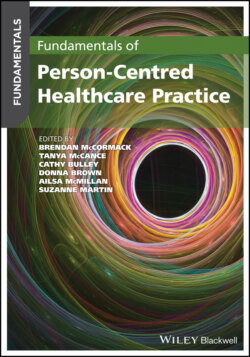Читать книгу Fundamentals of Person-Centred Healthcare Practice - Группа авторов - Страница 24
Physical and psychological attributes
ОглавлениеFor some philosophers (such as Frankfurt 1989), it is not enough to claim that human beings are persons on the basis of a collection of physical and psychological attributes because it is conceptually possible that members of another species could also lay claim to these. If attributes such as sight, taste, smell, sexuality, memory, desires, motives and so forth were to be used as a means of distinguishing persons from non‐persons, then we could easily provide a list of other species who would possess similar attributes. For example, the amazing developments in robotics and specifically humanoid robots and androids (i.e. robots or cyborgs made to look like humans on the outside) will find their way more and more into healthcare services in the future. Would it be possible to regard an android worker as a colleague and/or an electronic person? And would we ensure their rights are protected? While advancements are happening, societies and governments will have to find ways of managing or regulating the companies and products (or persons) they produce. In fact, the European Parliament is taking a proactive approach to exploring human‐like artificial intelligence, including considering giving rights and responsibilities to robots.
Further, if we argue that personhood is predicated merely on a set of physical and psychological attributes, then what happens to persons who may lose some of these attributes through disease and disability? For instance, a person with dementia may experience deterioration of memory and motivation and loss of physical attributes (e.g. mobility, hand–eye co‐ordination, etc.) and so could legitimately, on the basis of this argument, lose the status of person. Even such higher order attributes as ‘thought’ and decision making fail to distinguish persons from other creatures, as human beings are not alone in having desires and preferences. Members of other species share these attributes with human beings and some species could even be seen to base action on deliberation and even prior thought.
Therefore, distinguishing persons from non‐persons on the basis of a hierarchy of attributes is problematic. Some authors, such as Post (2006), argue that a dominant focus in Western cultures on some attributes being more important than others has led to a position whereby cognitive attributes of persons are given greatest importance. We see this played out in all kinds of ways in daily life, in that the ability to connect our thinking with our actions is essential for day‐to‐day functioning. Thus the loss of these attributes can have significant impact on human beings and their personhood as it can result in reduced ability to engage in daily activities of living, loss of employment, an inability to converse with others, a loss of connection with community, disconnection with friends and family, and increased loneliness and isolation.
So how should we think about ‘persons’ in ways that help us to not privilege cognition and rationality and in ways that avoid (human‐based) hierarchies of attributes? Most philosophers attempt to understand this through a focus on ‘personhood’ – and it is to this focus that we will turn in the Section 1.4, but first, here’s an activity to help you reflect on your reading so far.
